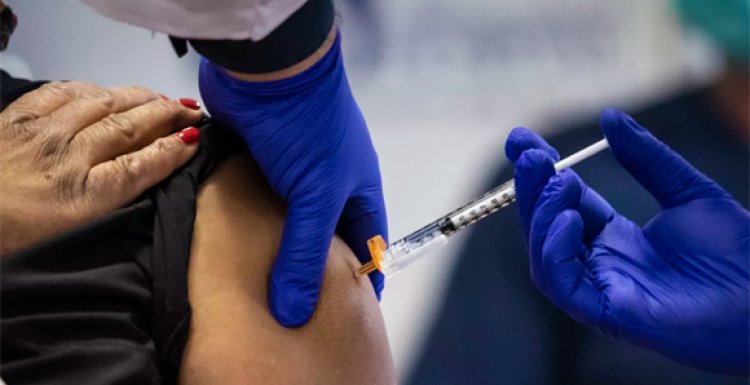New Delhi: A parliamentary committee has stressed on the urgent need to evolve strategies for development of next-generation vaccines and recommended that the Union Health Ministry encourage vaccine development on newer and more efficient platforms, besides evaluating the efficacy of the existing Covid-19 jabs.
More efforts are required in collaboration with other international agencies for development of various neutral vaccines as constant mutation of a virus requires following the mutants and being ready for pandemics-in-waiting, the department-related Parliamentary Standing Committee on Health and Family Welfare said in its 150th action taken report.
Responding to a recommendation to the ministry to take initiatives to develop a universal Covid vaccine effective against all variants, the committee -- in its report submitted in the Rajya Sabha -- said the Indian Council of Medical Research (ICMR) has already transferred all the strains of variants of concern of SARS-CoV-2 (Covid-19) to Bharat Biotech for development of a modified vaccine.
The ICMR-National Institute of Virology has been regularly undertaking studies to understand the protective efficacy of Covid-19 vaccines against emerging variants.
The action taken notes of the government on the recommendations contained in the report was received from the departments in April.
The committee made 140 recommendations, of which 64 were accepted by the ministry. In view of the ministry's replies, the committee decided not to pursue the other recommendations.
There are two recommendations or observations in respect of which replies of the ministry have not been accepted and further recommendations have been made.
The committee appreciated the Central Drugs Standard Control Organisation' (CDSCO) role for permitting various vaccines developed on technology/platforms for restricted use in an emergency situation.
"However, the panel feels that there is an urgent need to evolve strategies for development of next-generation vaccines. The committee accordingly recommends the ministry to encourage vaccine development on other newer and more efficient platforms and also evaluate the efficacy of the existing Covid-19 vaccines," one of the two recommendations by the committee stated.
It also reiterated its recommendation that the ministry must study the "Dharavi Model" -- for which it appreciated the role of the Brihanmumbai Municipal Corporation -- so that its experience may be utilised in future for containment of pandemics of similar nature.
Responding to a recommendation that the health ministry must explore options to study sewage samples for early prediction of any possible outbreaks of Covid waves in the future, the committee stated that the Indian SARS-CoV-2 Genomics Consortium (INSACOG) is looking to expand to sewage surveillance as a quick and early detection tool to assess the spread of variants in a hotspot locality.
INSACOG is working with the National Centre for Disease Control (NCDCo) towards developing a common data sharing portal for sewage surveillance.
The sentinel surveillance is dependent on RT-PCR testing and, hence, asymptomatic positive individuals may not be captured in the sequencing surveillance.
Therefore, there is a need for a novel strategy that can provide early warning about potential surge of infection and increase in variants of concern in specific geographic locations, the report said.
After infection by the SARS-CoV-2 virus in humans, shedding of virus particles in faeces of both symptomatic and asymptomatic patients has been reported.
"Pilot studies on use of this method of wastewater surveillance have been proposed to be initiated by INSACOG. Presently, establishment of experimental and computational methods as well as identification and training of laboratories for collection and processing of samples are underway," the committee stated.
It said the government, during the 73rd session of the World Health Assembly, supported the proposal to study the origins of the SARS-CoV-2 virus.
Following this, a joint World Health Organization (WHO) team that investigated the source of SARS-CoV-2 in January-February 2021 concluded that the virus probably originated in bats and was introduced in humans through an intermediary host species as the most likely pathway and one that will require more studies and more specific targeted research.
Estimation of viral load in wastewater and sewer systems, based on this faecal shedding of the virus, has been shown to be an early and sensitive monitoring tool for genomic surveillance, it said.
Other hypotheses considered and evaluated included the possibility of transmission through the trade of frozen cold-chain products. Although the investigation team concluded that a laboratory leak was the least likely hypothesis, WHO has acknowledged that this still requires further investigation, the action taken report said.



